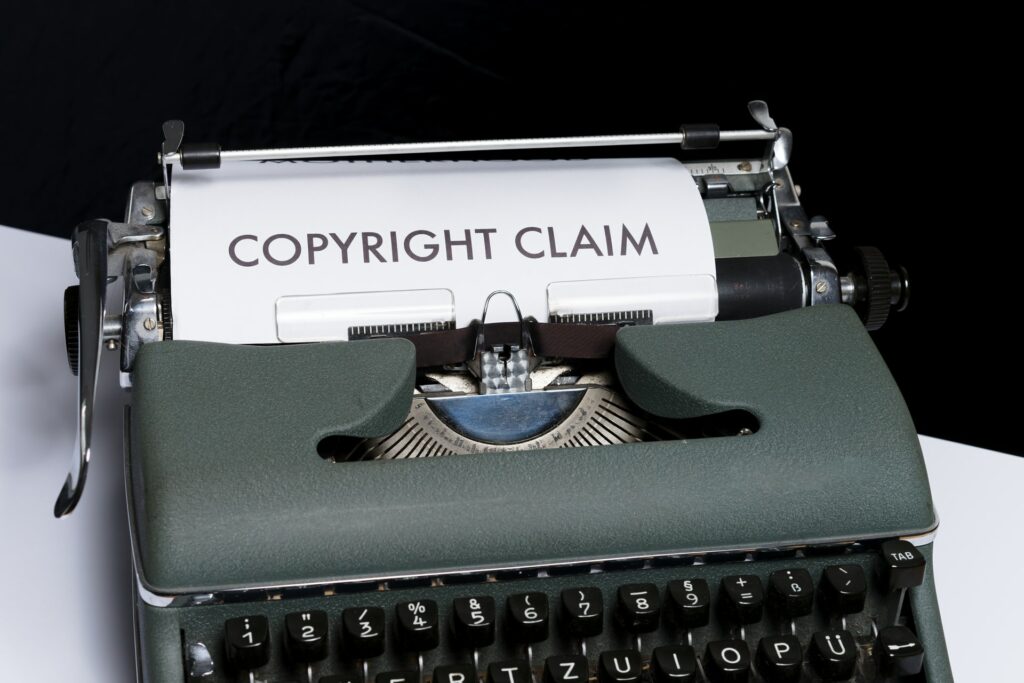
Yesterday, Authors Alliance submitted a comment to the Copyright Office in response to a Notice of Inquiry regarding developing regulations to govern the copyright small claims procedure under the newly enacted CASE Act. In the past, we have spoken out in favor of a sensible copyright small claims process, but cautioned that the CASE Act could invite abuse and pose a high likelihood of harm to authors as both claimants and respondents. Now, Authors Alliance welcomes the opportunity to provide our feedback to the Copyright Office so it can work to ensure that the Copyright Claims Board (“CCB”), which will hear copyright small claims, is an efficient, effective, and respected forum, and moreover that it serves the individual authors and creators it is intended to benefit. We summarize our input below, and invite you to read our full comment for more detail.
Notice Sending
One of the areas in which the Copyright Office requested input is the contents of the notices that will be sent to respondents when a claimant makes a claim against them before the CCB. The CASE Act mandates that these respondents be given an opportunity to opt-out of the proceedings and instead have the claim proceed in federal court, and requires the CCB or an entity acting on its behalf to send respondents two separate notices notifying the respondent of the claim against them. Regarding the contents of these notices, Authors Alliance advocated for clear, comprehensive, and informative notices which will convey to the recipients the nature of the CCB proceedings and the consequences of failing to opt out. We also requested that the CCB include information on these notices about why a respondent might want to opt in or opt out. If a respondent fails to opt out or appear before the CCB, they may be subject to a default judgment that is subject to limited review in federal court. It is our hope that if the Copyright Office implements our suggestions, notices will not be ignored, which could leave unwary respondents on the hook for damages.
Opt-Out
The Copyright Office also sought guidance on the opt-out procedure for respondents who want to opt out of the CCB proceedings. Authors Alliance strongly urged the Office to make opting out as simple as possible for respondents of different levels of technical and legal sophistication. We suggested the Office allow respondents to opt out using a variety of methods: email, online form, over the phone, or by standard mail. We also encouraged the Office to develop a publicly available list of entities that intend to opt out in order to make the forum more efficient for claimants, who can check this list to see if the party they are pursuing a claim against indicates an intent to affirmatively opt out before filing a claim. Finally, we provided feedback on a special opt-out provision for libraries and archives, advocating for a robust opt-out provision that would allow libraries and archives to avoid the cost of defending excessive claims and spend their precious resources elsewhere to further the public good.
Limiting Cases
The Copyright Office also asked for input on whether and how to limit the number of cases that a given party can bring before the CCB over a calendar year. While Authors Alliance did not propose a specific threshold (which would be difficult if not impossible to do without knowing the what the CCB’s caseload will look like), we did commend the Office for its attention to this matter, and suggested that it impose meaningful limits on the number of cases that can be brought by a given party, with the overall goal of deterring unscrupulous actors while keeping the forum open and accessible to those who most need it—individual creators and authors seeking to enforce or defend their rights. We also suggested that the CCB implement regulations to deter “repeat players” from bringing repeated and ill-founded claims.
Guidelines on Unsuitability for the Forum and Award of Statutory Damages
Authors Alliance also suggested that the Copyright Office develop sets of guidelines for the CCB to use when determining whether a particular claim is appropriate for the forum and guidelines for the award of statutory damages. The CASE Act requires that the CCB dismiss claims that are not suitable for CCB adjudication, but does not provide much in the way of guidance as to how to determine whether the CCB is a suitable forum for a given claim. We suggested that the Office set guidelines to help the CCB determine whether a case is suitable for the proceedings, encouraging the CCB to dismiss complicated, fact-specific claims, and hear only straightforward infringement claims. Complicated, fact-specific issues like fair use are not appropriate for this streamlined procedure, and guidelines to this effect would go a long way to making the forum efficient and accessible. Regarding statutory damages, we suggested that the Copyright Office issue guidelines for the CCB to use when deciding whether to award statutory damages. In general, damages awards be proportional to the actual harm from the alleged infringement, rather than the maximum allowable damages under the statute ($15,000 per work and no more than $30,000 overall), which is often grossly disproportionate to lost licensing revenue the claimant would have received if the alleged infringer had obtained a license to use the work. We also suggested that the CCB should be particularly mindful to avoid statutory damages in cases of noncommercial uses.
20210426_CASEActRegulations_AuthsAll.docxDiscover more from Authors Alliance
Subscribe to get the latest posts sent to your email.
